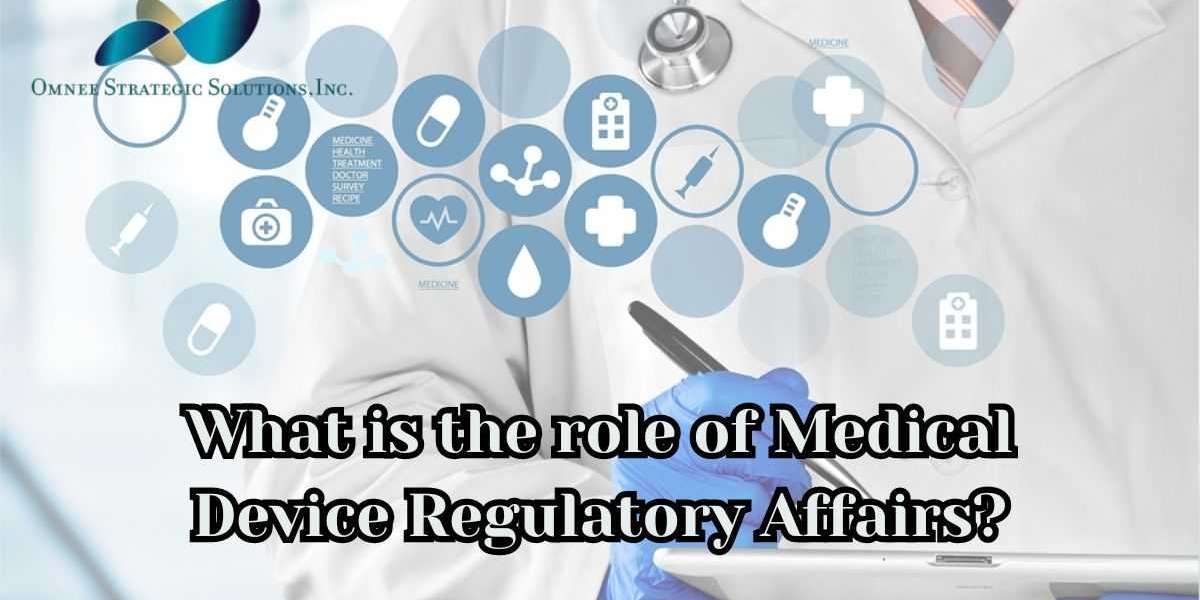In the healthcare industry, medical devices play a crucial role in diagnosing, treating, and improving patient outcomes. However, the process of bringing these devices to market is complex and highly regulated. This is where Medical Device Regulatory Affairs come into play. But what exactly is the role of Medical Device Regulatory Affairs, and why is it so important? Let’s explore this essential function in the medical device industry.
Understanding Medical Device Regulatory Affairs
Medical Device Regulatory Affairs refers to the department or professionals within a company responsible for ensuring that medical devices comply with all applicable regulations and standards before they can be marketed and sold. These regulations are put in place by government agencies to ensure the safety, efficacy, and quality of medical devices.
Regulatory Affairs professionals work closely with various departments, including research and development, quality assurance, and clinical teams, to ensure that a device meets the required standards from the initial design phase through to post-market surveillance. Their work is critical to the success of a medical device company, as non-compliance can lead to delays in product launch, fines, or even product recalls.
The Key Roles of Medical Device Regulatory Affairs
1. Ensuring Compliance with Regulations
One of the primary roles of Medical Device Regulatory Affairs is to ensure that all medical devices comply with the relevant regulations. These regulations vary by country and region, but they generally include requirements related to the safety, performance, and labeling of medical devices. Regulatory Affairs professionals must stay updated on any changes in regulations and ensure that the company’s devices continue to meet these requirements.
For example, in the United States, the Food and Drug Administration (FDA) regulates medical devices, while in Europe, devices must comply with the European Union’s Medical Device Regulation (MDR). Understanding these regulatory frameworks and ensuring compliance is a critical responsibility of Regulatory Affairs.
2. Preparing and Submitting Regulatory Documents
To bring a medical device to market, a company must prepare and submit various regulatory documents to the relevant authorities. This includes detailed information about the device’s design, manufacturing process, clinical data, and risk management strategies. Regulatory Affairs professionals are responsible for compiling this information and ensuring that it meets the standards set by regulatory agencies.
These submissions often include documents like pre-market notifications (510(k)) in the U.S. or CE marking applications in Europe. The accuracy and completeness of these submissions are vital, as any deficiencies can result in delays or rejections.
3. Managing Regulatory Strategy
Regulatory Affairs professionals play a strategic role in guiding the development of medical devices to ensure that they meet regulatory requirements. This involves working closely with product development teams to identify potential regulatory challenges early in the design process and advising on how to address them.
By integrating regulatory considerations into the product development process, companies can avoid costly redesigns and delays. This proactive approach helps ensure that devices are designed with compliance in mind, ultimately leading to a smoother regulatory approval process.
4. Communication with Regulatory Authorities
Another important aspect of Medical Device Regulatory Affairs is maintaining open communication with regulatory authorities. This includes responding to questions or requests for additional information during the review process, as well as keeping regulators informed about any changes to the device that could impact its safety or effectiveness.
Effective communication is essential for building a positive relationship with regulatory agencies, which can facilitate the approval process and help resolve any issues that may arise.
5. Post-Market Surveillance and Compliance
The role of Regulatory Affairs doesn’t end once a device is on the market. Post-market surveillance is a critical ongoing responsibility to ensure that the device continues to perform safely and effectively. This includes monitoring adverse events, managing recalls if necessary, and ensuring that any changes to the device are properly documented and approved.
Regulatory Affairs professionals must also ensure that the company remains compliant with any new regulations or standards that may be introduced after the device is on the market. This continuous monitoring and compliance are essential for maintaining the trust of regulators, healthcare providers, and patients.
The Importance of Medical Device Regulatory Affairs
Medical Device Regulatory Affairs is vital for ensuring that medical devices are safe and effective for patient use. Without the rigorous oversight provided by Regulatory Affairs professionals, there would be a greater risk of unsafe or ineffective devices reaching the market, potentially harming patients and damaging the company’s reputation.
Moreover, regulatory compliance is not just about avoiding penalties or delays; it’s about ensuring that medical devices meet the highest standards of safety and quality. This commitment to quality and safety is what ultimately leads to successful product launches, satisfied customers, and better patient outcomes.
Conclusion
The role of Medical Device Regulatory Affairs is multifaceted and essential to the success of any medical device company. From ensuring compliance with complex regulations to managing post-market surveillance, Regulatory Affairs professionals are key to bringing safe and effective devices to market.
For those in the medical device industry, understanding the importance of Regulatory Affairs and working closely with these professionals can help ensure that your products meet regulatory standards and reach the market without unnecessary delays.
By appreciating the critical role of Medical Device Regulatory Affairs, companies can navigate the regulatory landscape more effectively and ultimately bring life-saving devices to those who need them most.








